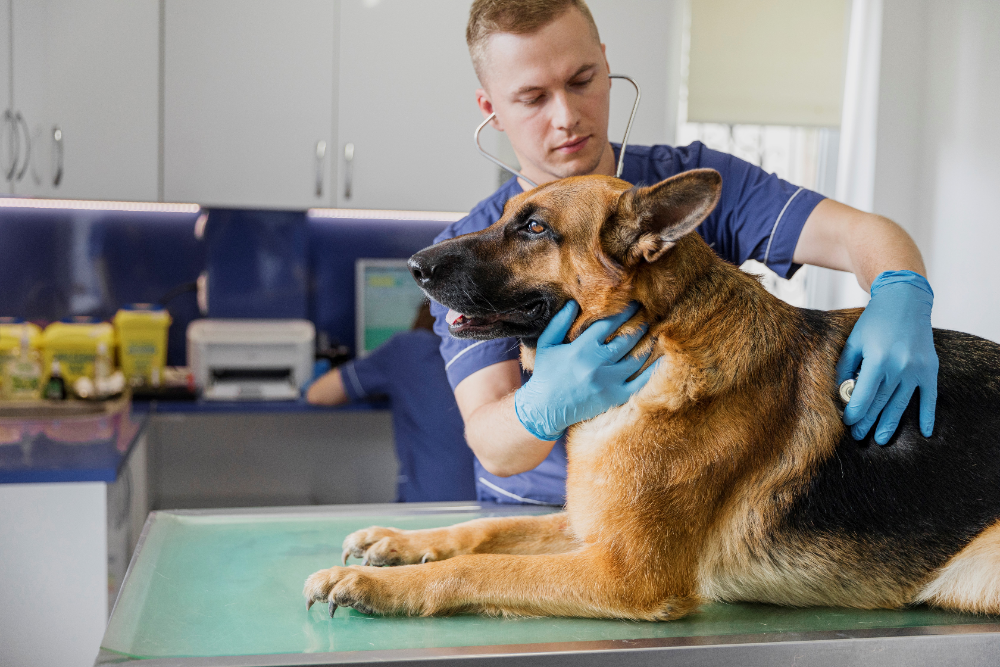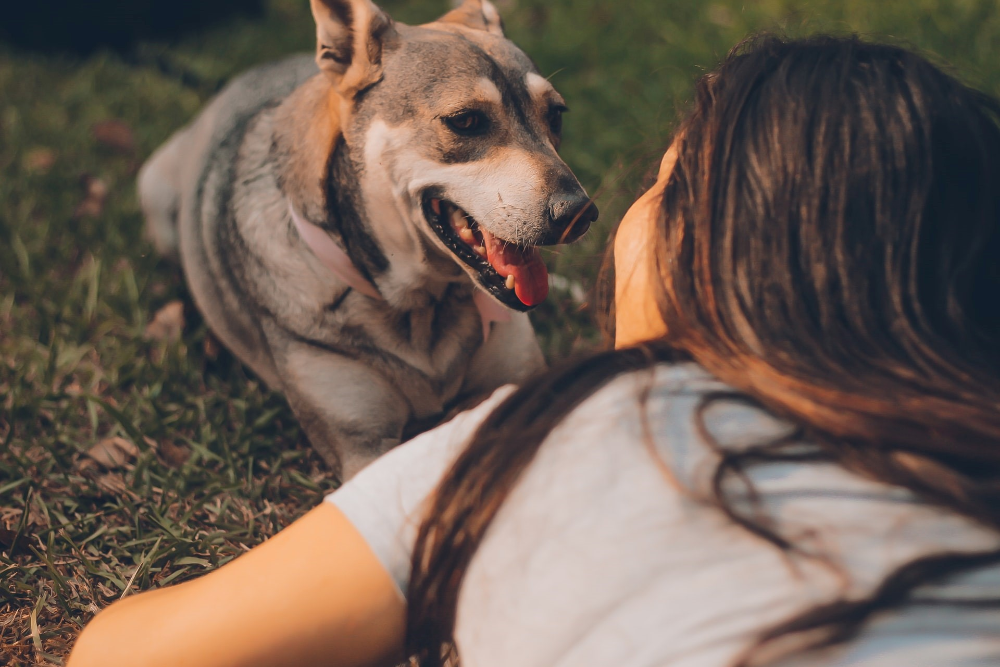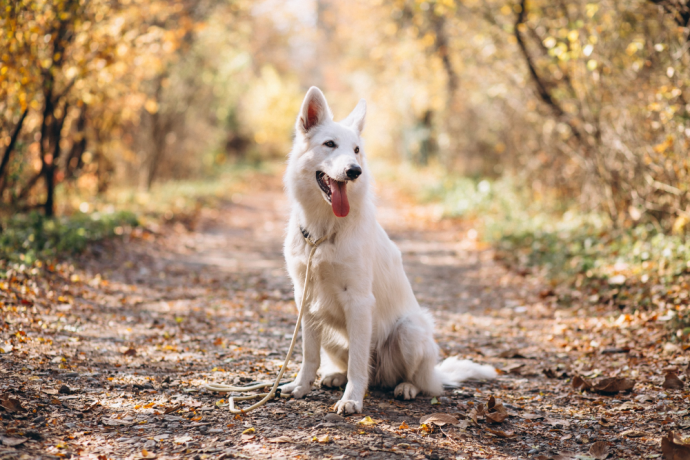Dog Neutering: Pros and Cons of Neutering a Male Dog (Vet Advice)
Written by:
Author: Dr. Linda Simon
Dr. Linda Simon is a veterinary surgeon working with seven years of experience. She is a fellow of the British Veterinary Association and specializing in animal medicine. Also, she has been the Woman magazine resident vet for the past two years and writes a regular column for them, focusing on pets and their health.
View all 30 articlesLearn about our editorial process and veterinary review board.
Viewed: 7972
Updated on: 04/29/2023
What is the best age to neuter a Male Dog?
While this may seem like a straight forward question, it is actually far from it! Depending on who you speak and in which country you find yourself, you will notice that veterinarians will give different advice on the best age to neuter your dog.
In reality, there is no ‘one size fits all’, and each dog should really be assessed as an individual. While six months may be the perfect time for one dog, performing the procedure at two years of age may actually be better for another.
As a general rule of thumb, it is recommended that a male is castrated at about six months of age, just before puberty. Having said this, we need to consider many factors other than age, including a dog’s situation, breed and size.
- Most rescue centers and charities will castrate their males earlier (between three and six months) to decrease their mating risk, which would further add to the overpopulation problem.
- We need to consider an animal’s mental health. Some anxious dogs can benefit from the testosterone that comes from puberty, and it may be best to delay surgery in these dogs.
- Another consideration is the dog’s size and breed. Large breeds like Rottweilers and Golden Retrievers benefit from being castrated when over a year of age to reduce the risk of certain diseases, including orthopedic disorders and even some cancers.
READ MORE: The 10 Best Orthopedic Dog Beds
Benefits of Neutering a Male Dog
There are several benefits to performing a castration surgery:
- Reduces to zero chances of an accidental mating and unwanted pregnancy. This is especially important in multi-pet households. There are currently many unwanted dogs in rehoming centers, and young, healthy dogs are being put to sleep every day because of the lack of homes available.
- Castrated dogs are generally much easier to manage when out on a walk-in public. They don’t have as much of a desire to roam, and they won’t seek out and pester a female in season. If neutered early enough, they don’t tend to stop every few seconds to mark their territory either!
- There will be less roaming and escaping from home. Those that are neutered don’t have that ‘drive’ to follow the scent of a female.
- Castrating eliminates the production of testosterone, which can improve some dogs’ behavior, especially those with testosterone-driven vices such as dog to dog aggression, humping, and urine marking. However, owners should be aware that castration is not a panacea, and most dogs with behavioral disorders require specific programs and a lot of training.
- There are several health issues an unneutered dog is more likely to suffer from, including Benign Prostatic Hyperplasia, Prostatic abscesses and Testicular cancers.
Cons of Neutering your Dog
- Neutering is the removal of both testicles. This means a surgery under a general anesthetic. While this is a routine procedure that is the ‘bread and butter’ of the vet industry, every anesthetic and surgery does carry an inherent risk. Owners will always be talked through the potential risks and will be asked to sign a consent form. Seromas and infections at the incision site would not be uncommon, though they can largely be prevented with the use of Elizabethan collars and good hygiene.
- While vets do everything they can to keep dogs comfortable afterward (such as providing pain relief and prescribing strict rest), dogs can feel moderate discomfort for a few days after the procedure, and some may be a little bruised and swollen. Most are back to normal within the week.
- Obesity is more common in neutered males, perhaps due to the reduced sex hormone levels and a slowdown in metabolism. This is not an inevitability and can be prevented with the correct diet and exercise.
- Though rare, I have had a few owners who have regretted having the surgery performed when a few years down the line they would like to breed from their male. Neutering is non-reversible, so owners need to be aware that a castrated male can never be bred from and won’t be able to produce pups. While this is generally a good thing as there are too many dogs in the world, a well-bred and good-tempered male may be the right candidate to breed from, so it is always worth considering.
Do male Dogs change after being neutered?
A frequent concern is that a dog ‘won’t be himself’ after being castrated and their personality will change. This is utter rubbish and though dogs may be a bit quiet for a day or two, they will soon return to normal in no time.
Testosterone-driven behaviors (such as humping) can indeed be reduced, a positive thing for most!
What happens if you neuter a Dog too early?
Interestingly, most studies find that males can safely be neutered any time from 8 weeks of age (though most vets will give them a few more months to grow and mature).
In general, neutering before the age of one is a good idea and the benefits will outweigh the risks. There are, however, some exceptions to this rule which is why it is always important to discuss the neutering of any individual dog with their vet.
- Anesthesia and surgery carry a slightly higher risk in very young dogs, especially in small breeds who are less able to regulate their temperature and blood sugars.
- Certain larger dogs should not be castrated before the age of one as this can increase the risk of cranial cruciate ligament disease, hip dysplasia, and lymphoma.
READ MORE: Best Small breed Puppy Food
Some veterinary behaviorists believe that neutering a very submissive dog early can be a negative as they never receive the confidence boost that puberty and testosterone can give them.
 Dog Veterinary Tips Pneumonia in Dogs: Symptoms, Diagnosis, Treatment and Recovery (Vet Advice)
Dog Veterinary Tips Pneumonia in Dogs: Symptoms, Diagnosis, Treatment and Recovery (Vet Advice) - 343
- 0
 Dog Veterinary Tips Stem Cell Therapy for Dogs: Conditions Treated, Efficacy, and Cost
Dog Veterinary Tips Stem Cell Therapy for Dogs: Conditions Treated, Efficacy, and Cost - 871
- 0
 Dog Veterinary Tips Why is my Dog throwing up: Causes and Preventing (Veterinary Advice)
Dog Veterinary Tips Why is my Dog throwing up: Causes and Preventing (Veterinary Advice) - 21800
- 5
 Dog Care My Dog Keeps Scratching His Mouth: Reasons Why Your Dog Scratching Face
Dog Care My Dog Keeps Scratching His Mouth: Reasons Why Your Dog Scratching Face - 17168
- 1
 Dog Care Why Is My Dog Bleeding From Its Butt? Causes and treatment of rectal bleeding in the dog
Dog Care Why Is My Dog Bleeding From Its Butt? Causes and treatment of rectal bleeding in the dog - 15103
- 0
























